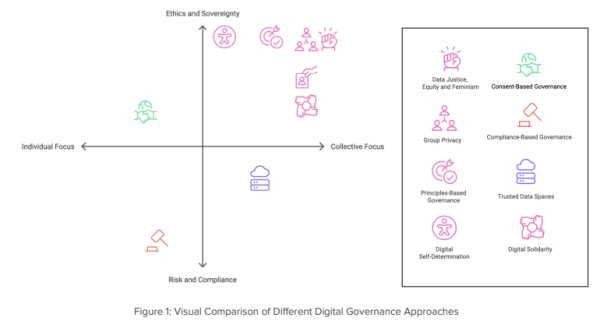Paper by Sara Marcucci and Stefaan Verhulst: “In today’s increasingly complex digital landscape, traditional data governance models-such as consent-based, ownership-based, and sovereignty-based approaches-are proving insufficient to address the evolving ethical, social, and political dimensions of data use. These frameworks, often grounded in static and individualistic notions of control, struggle to keep pace with the fluidity and relational nature of contemporary data ecosystems. This paper proposes Digital Self-Determination (DSD) as a complementary and necessary evolution of existing models, offering a more participatory, adaptive, and ethically grounded approach to data governance. Centering ongoing agency, collective participation, and contextual responsiveness, DSD builds on foundational principles of consent and control while addressing their limitations. Drawing on comparisons with a range of governance models-including risk-based, compliance-oriented, principles-driven, and justice-centered frameworks-this paper highlights DSD’s unique contribution: its capacity to enable individuals and communities to actively shape how data about them is used, shared, and governed over time. In doing so, it reimagines data governance as a living, co-constructed practice grounded in trust, accountability, and care. Through this lens, the paper offers a framework for comparing different governance approaches and embedding DSD into existing paradigms, inviting policymakers and practitioners to consider how more inclusive and responsive forms of digital governance might be realized…(More)”.
